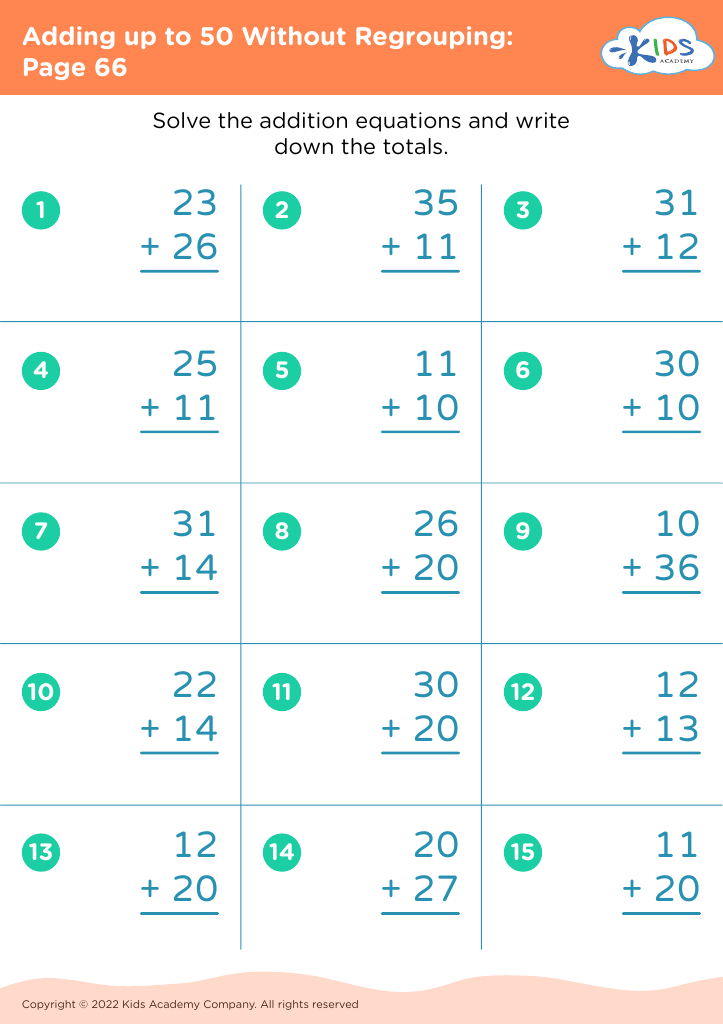Practice division Addition & Subtraction Worksheets for Ages 5-9
3 filtered results
-
From - To
Enhance your child's math skills with our engaging and fun Practice Division, Addition & Subtraction Worksheets for Ages 5-9! Designed to complement early mathematics education, these worksheets blend colorful visuals with age-appropriate tasks, ensuring kids not only learn but enjoy the process. Each worksheet aims to strengthen arithmetic foundations, focusing on addition, subtraction, and introductory division concepts. Perfect for classroom or at-home practice, our carefully crafted worksheets boost confidence and build essential math skills in young learners. Visit our webpage to help your child cultivate a love for math while mastering the basics in a stimulating and supportive environment.
Parents and teachers should prioritize teaching division, addition, and subtraction to children aged 5-9 because these foundational math skills are crucial for cognitive development and academic success. During these formative years, children's brains are highly adaptable and primed for absorbing new information. Mastering these basic arithmetic operations fosters critical thinking and problem-solving skills that will benefit them throughout their educational journey and beyond.
Incorporating practice sessions for division, addition, and subtraction builds a strong numerical foundation, essential for understanding more complex mathematical concepts later on. It also enhances their ability to recognize patterns, develop mental calculation skills, and improve logical reasoning. This early practice helps children to feel confident and competent in their math abilities, reducing math anxiety and developing a positive attitude toward learning.
Furthermore, these arithmetic skills are not only vital in the classroom but are integral to everyday life. Whether it's understanding time, managing pocket money, or sharing snacks equally with friends, division, addition, and subtraction come into play. Parental and teacher support in nurturing these skills at an early age helps ensure that children gain a practical understanding of math, equipping them with essential tools for both academic achievement and everyday problem-solving.




















